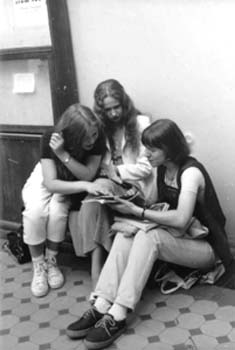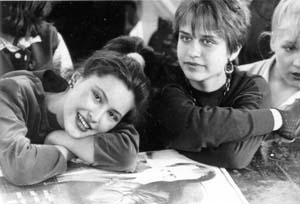|
The past decade has produced tremendous
impact upon the entire process of bring-ing Russian young generation into
social context of the nation. The society abruptly turned from being entirely
ruled by unitary and rigid administration into something utterly different
and amply described by the two terms: variation and fluidity. At the same
time, the emerging new Russian culture — conceivably associated with power
and democracy merged in one — has to fight its way through extremely hostile
social, economic and political environments making the process of young
people integration into society highly problematic.
Socialization process is further complicated by absolutely different
rules of the game if compared to what teenagers’ parents faced. Fathers’
and mothers’ experience is often useless from their sons’ and daughters’
standpoint, as many parents do not have a slightest idea of what tasks
life is going to pose before their offsprings and what personal qualities
and skills need be developed to meet social challenges of tomorrow. Those
parents who were brought up in soviet-time context cannot serve adequate
models of social behavior to their children for the simple reason that
while youngsters are in bad need of advice, elders struggle to survive
their own crisis of social values standards changed. Recent surveys revealed
prevalent parents’ orientation towards social conformity values (adequate
conduct in public, integrity, accuracy, obedience to parents, good marks
at school, etc.), while values describing internal behavioral gadgets
(responsibility, compassion, concentration, curiosity, self-control,
etc.) are largely neglected.
|
 |

![]()


